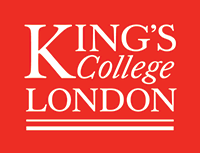Presented by:

Midia Partner :


Vaccines for Covid-19: actions and narratives
How companies, corporate and public communication may contribute to vaccines’s access and fighting misinformation.
From an enormous effort that involved universities, companies, government, and other entities, several vaccines for Covid-19 were developed in record time. At the same time, vaccination campaigns have been faced with campaigns of disinformation, fake news, xenophobia, and denial in an alarming scale.
This episode will explore how business communication and public communication may contribute to vaccines’s access and fighting misinformation.
You can watch the lectures at any time and send your questions until April 28th. The questions will be selected and answered in the live webinar on April 30th at 9:30 AM (Brasília Time), at Aberje’s YouTube channel.
The webinars are now available!
https://www.youtube.com/watch?v=a_WeovRKVPw
Marta Díez, Country Manager of Pfizer Brazil
“Vaccination is an act of love”
Pfizer Brasil’s CEO comments on Pfizer’s campaign (Science Will Win), list the actions of the company in Brazil and the challenges faced by the communication professional that work on the sector. She recalls the importance of vaccination for the eradication and control of many diseases throughout the world and for the protection of individuals, families and for the society as a whole. She also brings data from a study on the vaccination status of Brazil and insist on the importance of a generalized commitment around vaccination and immunization.
https://www.youtube.com/watch?v=dHahMZZ02z4
Raul Machado Neto, Director for Institucional Strategy of Butantan Institute
“The need for a Covid-19 variant detection alert network is imperious”
Professor Raul Machado speaks of the expertise and productive capacity of Butantan Institute on the field of immunization, with factories that produce 7 different kinds of vaccines and is responsible for 65% of the total delivered by the Brazilian Public Healthcare System. He mentions that two new factories are planned, where monoclonals and a dengue vaccines will be produced. Regarding Covid-19, he presents the two vacines, Coronavac, already in production, and Butanvac, in clinical trial, as well as the development of a serum for teraphy, the building of an alert network for detection of variations of the disease and the epidemiological project developed in Serrana. He still comment on the importance of partnerships, with both public and private institutions.
https://www.youtube.com/watch?app=desktop&v=fh_lfvhWY78
Maria Berta Ecija, Specialist in health diplomacy, King’s College London
“The value attributed to health is what makes Brazil have prestige nationally and internationally”
Maria Berta recalls that health became a diplomatic issue by the end of the twentieth-century with globalization and multipolarity and that it gathers three interdependent agendas, security, economy and human rights. She points that, historically, Brazil is a world leader in public health, and that its prestige comes, above all, from the value attributed to health, as a basic human right – a value consolidated by the 1988 Constitution and embodied in the Sistema Único de Saúde (SUS). Lastly, she lists a series of successful public health campaigns, that both informed and educated the population about diseases, such as the polio immunization campaign, Zé Gotinha. From these campaigns, many lessons can be drawn to the current Covid-19 crisis.
https://www.youtube.com/watch?v=KyM9x-s87cQ


















